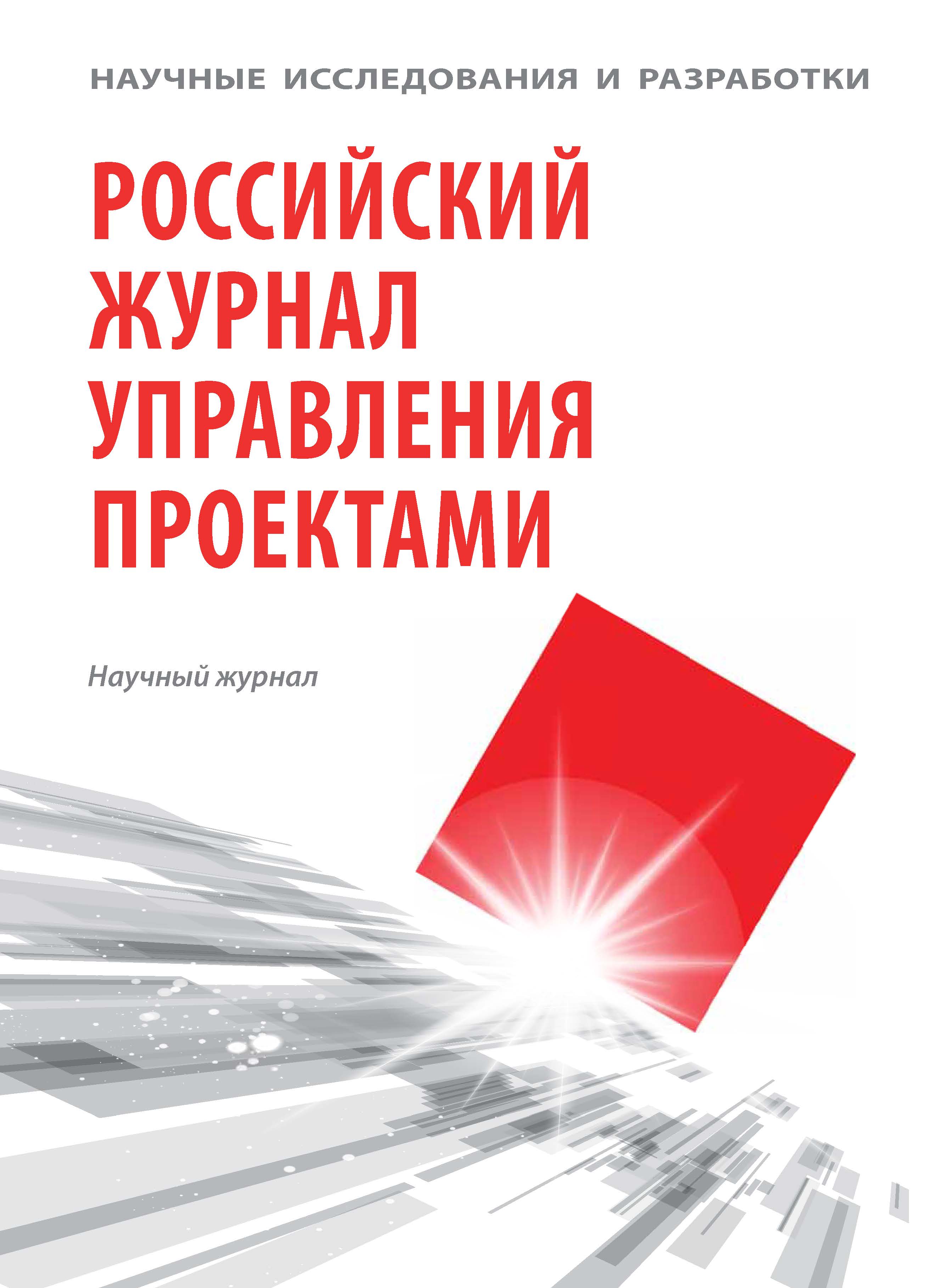from 01.01.2020 until now
Gelendzhik, Krasnodar, Russian Federation
The goal of this article is to raise interest to the problem of identifying the reasons for unwillingness to work in project-type organizations. The article addresses the following issues: whether there are employees in projects, program and portfolio who do not want to work in such type of the organizations initially (before being involved in the project), or perhaps unwillingness to participate/work in some projects has appeared during execution of some project processes. Reasons, or the vital necessity due to which such kind of category of personnel is in the temporary project organization are considered, for example: availability, or lack of project management standards, financial needs, there is no other work for this period, etc. Also, in this article we make an attempt to determine what is the percentage of employees in projects who has the necessity to work in projects for any reasons; does this part of employees negatively impact the success of projects and, as a consequence, on the programs and portfolios. So, the main focus of this work is directed to those category of employees who do not want to participate in project sphere and the impact of the personnel group on processes, elements and results of any project.
unwillingness to work/participate in a project, the courses of unwillingness to work in a project, negative impact on a project, Stakeholders, Project, Program, Portfolio
1. GPM P5. (2019) The GPM P5TM Standard for Sustainability in Project Management GPM Global Version 2.0. Published in the United States of America different approach during designing and executing projects. https://mosaicprojects.com.au/PDF-Gen/The-GPM-P5-Standard-for-Sustainability-in- Project-Management-v2.0.pdf
2. IPMA. (2015). IPMA Reference Guide ICB4 in an Agile World Version 2.3. https://www.pma.at/files/downloads/577/ipma-icb4-in-agileworld-v23.pdf
3. Grau, N. Vice President Standards and Awards IPMA - International Project Management Association Technische Hochschule Mittelhessen, Friedberg, Germany. (2012) Standards and Excellence in Project Management - In Who Do We Trust? Published by Elsevier Ltd. Abstract (Grau). https://doi.org/10.1016/j.sbspro.2013.03.005
4. Bodea, C. N. (2020), Improving the design of interpersonal skills modules for IT/MIS curricula: findings from a corpus linguistic research. https://doi.org/10.48009/4_iis_2020_178-186
5. Khedhaouria, A., Montani, F. @ Roy Thurik. (2017). Time pressure and team member creativity within R&D projects: The role of learning orientation and knowledge sourcing. International Journal of Project Management 35 (2017) 942-954 https://personal.eur.nl/thurik/Research/Articles/Time%20pressure%20and%20team%20member%20creativity%20within%20R&D%20projects.pdf
6. Baer, M., (2006). The Curvilinear Relation Between Experienced Creative Time Pressure and Creativity: Moderating Effects of Openness to Experience and Support for Creativity. Journal of Applied Psychology 2006, Vol. 91, No. 4, 963-970 https://www.researchgate.net/publication/6950135
7. Amabile, T.M., Conti, R. Coon, H. Lazenby, J. @ Herron. M. (1996). Assessing the Work Environment for Creativity. The Academy of Management Journal. Published By: Academy of Management http://people.wku.edu/richard.miller/amabile.pdf
8. Amabile, T. M. @ Conti, R., 1999. Changes in the Work Environment for Creativity During Downsizing. Academy of management journal 1999. https://dash.harvard.edu/bitstream/handle/1/37940231/Downsizing-changes-in-the-work-environment-for-creativity-Amabile-Conti-1999.pdf?sequence=1&isAllowed=y
9. Grau, N. (2012). Standards and Excellence in Project Management - In Who Do We Trust? 2013 The Authors. Published by Elsevier Ltd. https://reader.elsevier.com/reader/sd/pii/S1877042813004345?token=2FEB023BFD65A2C4B43643B66A2AB7190DD3E48BF38AECF0453A6F6B5382FF5C3D33BB34421AC3EEEEFFD560B0D47C2C&originRegion=eu-west-1&originCreation=20210826132849
10. David, M. (2007). Cultural Studies, Common Sense and Communications: The infra- ordinary, the interdisciplinary and the particular http://research.gold.ac.uk/id/eprint/11238/1/Cultural%20Studies,%20Common%20Sense%20and%20Communications_David%20Morley.pdf
11. Radujkovic, M. @ Nahod, M-M. (2013). The Impact of ICB 3.0 Competences on Project Management Success. Published by Elsevier Ltd. https://www.researchgate.net/publication/257718805
12. Huemann, M. (2016). HRM in the Project-Oriented Organization. Published 2016 by Routledge 2 Park Square, Milton Park, Abingdon, Oxon OX14 4RN 711 Third Avenue, New York, NY 10017, USA. https://images.routledge.com/common/jackets/originals/978036766/9780367668679.tif.
13. Koops, L., Bosch-Recveldt, M. @ Hertogh, M. (2016). Identifying perspectives of public project managers on project success: Comparing viewpoints of managers from five countries in North-West Europe. 2016 Elsevier Ltd, APM and IPMA. All rights reserved. https://doi.org/10.1016/j.ijproman.2016.03.007
14. Imam, H. (2021). The roles of knowledge sharing, cohesion and trust in the team. 2021 Elsevier Ltd, APM and IPMA. All rights reserved. https://doi.org/10.1016/j.ijproman.2021.02.006
15. Chen,Y.L. @ Lin, Y.L. (2018). Goal orientations, leader-leader exchange, trust, and the outcomes of project performance. 2018 Elsevier Ltd, APM and IPMA. https://doi.org/10.1016/j.ijproman.2018.03.009
16. Shalley, C.E., Blum, T.S. @ Gilson, L. (2009). Interactive Effects of Growth Need Strength, Work Context, and Job Complexity On Self-Reported Creative Performance. Academy of Management Journal 2009, Vol. 52, No. 3, 489-505. https://www.researchgate.net/publication/274753372 .
17. Cooke-Davies, T., (2002). The “real” success factors on projects. 2001 Published by Elsevier Ltd. https://doi.org/10.1016/S0263-7863(01)00067-9 .
18. Atkinson, R. (1999). Project management: cost, time and quality, two best guesses and a phenomenon, its time to accept other success criteria. 1999 Elsevier Science Ltd and IPMA. All rights reserved Printed in Great Britain https://notendur.hi.is/vio1/Project_management_Cost_time_and_quality.pdf
19. Cookie-Devies, T., Lechler, T.G. @ Crawford, L.H., (2001). Project Management Systems: Moving Project Management from an Operational to a Strategic Discipline. 2001 Published by Elsevier Science Ltd and IPMA. https://www.researchgate.net/publication/27827186
20. Dvir, D. (2006). Projects and Project Managers: The Relationship between Project Managers' Personality, Project Types, and Project Success. Project Management Journal December 2006. https://www.researchgate.net/publication/236851231_Projects_and_Project_Managers_The_Relationship_between_Project_Managers%27_Personality_Project_Types_and_Project_Success
21. Pillemer, J. (2012). Perspective on the Social Psychology of Creativity. Journal of Creative Behavior 46, no. 1 (2012): 3-15. https://www.researchgate.net/publication/264251929






